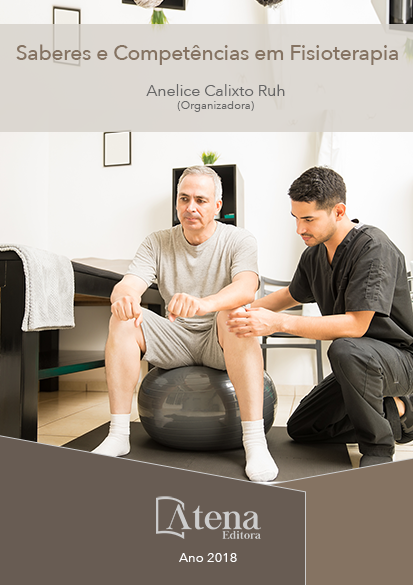
AVALIAÇÃO PRÁTICA POR COMPETÊNCIAS: OSCE NA FISIOTERAPIA
Nas metodologias ativas,
aprendizado se dá a partir de situações reais; as
mesmas que os alunos vivenciarão depois na
vida profissional, de forma antecipada, durante
o curso. Tomando por base este, dentre muitos
argumentos, somados à filosofia do futuro
baseado na prática, missão de nossa Instituição,
buscamos um instrumento de avaliação
condizente com estas metodologias. No início
de 2017, implantamos a avaliação integrativa
prática (AIP) baseada no sistema OSCE
(Objetive Structurad Clinical Examination), cujo
objetivo foi avaliar o que os alunos fazem e
não apenas o que eles sabem. Esta se baseia
em estações simuladas. Algumas habilidades
avaliadas foram comunicação e interação com
pacientes e familiares; anamnese; exame físico
geral e especial; raciocínio clínico e formulação
de hipóteses de diagnóstico; interpretação de
exames laboratoriais; proposição e execução
de ações; orientação e educação ao paciente;
e resolução de problemas. Quando comparada
a percepção dos alunos de 5º e 7º períodos,
que realizaram esta avaliação pela primeira
vez, foi evidente a percepção mais positiva
do 7º período. Quando analisado de maneira
longitudinal, o desempenho e a percepção
dos alunos do 5º período de 2017, enquanto
cursaram 5o
, 6o
e 7o
semestres, observou-se
melhora no desempenho e na percepção ao
longo do curso. A experiência da implantação
da AIP foi exitosa em todos os aspectos, desde
sua construção coletiva, envolvendo todos
os professores fisioterapeutas, a execução,
os resultados e a avaliação da percepção
dos alunos quanto à AIP, que mostrou que
estamos no caminho certo para a formação de
profissionais autônomos e competentes.
AVALIAÇÃO PRÁTICA POR COMPETÊNCIAS: OSCE NA FISIOTERAPIA
-
DOI: 10.22533/at.ed.90118021210
-
Palavras-chave: Metodologias Ativas; Avaliação; Competências; Fisioterapia.
-
Keywords: Active methodologies in teaching; Assesment; Competence; Physiotherapy.
-
Abstract:
When using the active
methodologies in teaching, learning takes place
from real situations simulation; the same ones
that the students will experience later in their
professional life, but in advance, during their
graduation. Based, mostly, on this argument, and
on the philosophy of our Institution, which is future
based on practice, we sought an instrument of
evaluation consistent with these methodologies.
In early 2017, we implemented the OSCE
(Objective Structured Clinical Examination)
system, and introduced the Practical Integrative
Assessment (AIP), which aimed to assess what
students really do and not only what they know. This occurred in simulated stations.
Some skills evaluated were communication and interaction with patients and their
families; anamnesis; general and specific physical examination; clinical reasoning and
formulation of diagnostic hypotheses; interpretation of laboratory tests; proposition and
execution of actions; patient orientation and education; and troubleshooting. When
comparing the perception of the students from the 5th and 7th periods, both performing
this evaluation for the first time, the most positive perception was from students from
the 7th period. In a longitudinal analysis, the performance and perception of the
students that went from the 5th period (2017) through the 7th semester (2018), had an
improvement during the course. The experience in implantation the AIP was successful
in all aspects, from its collective construction, involving all physiotherapist teachers,
the execution, the results and the evaluation of the students’ perception regarding the
AIP, which showed that we are on the right track for the training of autonomous and
competent professionals.
-
Número de páginas: 15
- Erica Passos Baciuk
- Juliana Valéria Leite
- Erica P Baciuk


